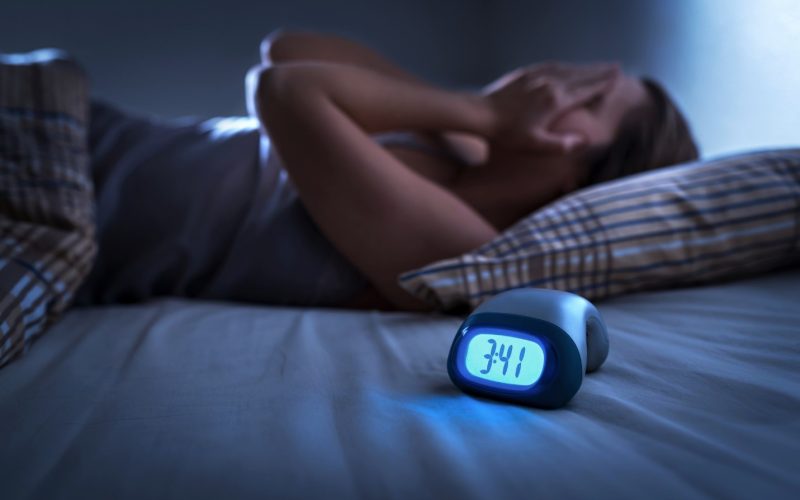Struggling to catch those Zzz’s? Does the thought of another restless night leave you feeling defeated? You’re not alone. Millions of people around the world grapple with sleep issues, from occasional insomnia to chronic sleep disorders. But the good news is, achieving restful sleep is within reach!
About the Author:
Hi there! I’m Dr. Sarah Jones, a certified sleep specialist with over 15 years of experience helping people achieve healthier sleep patterns. Whether you occasionally face restless nights or experience chronic insomnia, I’m here to share my top tips for finally conquering sleepless nights and waking up feeling energized and ready to take on the day!

The Importance of Quality Sleep
Sleep isn’t just a luxury; it’s a biological necessity. During sleep, our bodies repair and rejuvenate themselves, consolidating memories, regulating hormones, and strengthening our immune system. When we don’t get enough quality sleep, we face a cascade of negative consequences, including impaired cognitive function, weakened immunity, increased risk of chronic diseases, and even mood swings.
Understanding Sleep Cycles
To optimize your sleep, it’s helpful to understand the different stages of sleep. There are four main stages:
- Non-rapid eye movement (NREM) sleep: This stage is further divided into three progressively deeper stages. NREM sleep is crucial for physical restoration and memory consolidation.
- Rapid eye movement (REM) sleep: This is the stage associated with dreaming. REM sleep plays a vital role in emotional processing and learning.
A healthy sleep cycle involves cycling through these stages throughout the night.
Creating a Sleep-Promoting Environment
Your bedroom should be a haven for sleep. Here’s how to optimize it:
- Darkness: Invest in blackout curtains or an eye mask to block out light.
- Quiet: Use earplugs or a white noise machine to mask distracting sounds.
- Coolness: Aim for a bedroom temperature between 60-67°F (15-19°C).
- Comfort: Invest in a comfortable mattress, pillows, and breathable bedding.
- Declutter: A cluttered environment can be visually stimulating and disrupt sleep.
Developing a Relaxing Bedtime Routine
Signal to your body that it’s time to wind down with a relaxing bedtime routine:
- Power down electronics: The blue light emitted by screens can suppress melatonin, a sleep hormone. Aim to turn off electronics at least an hour before bed.
- Dim the lights: This helps regulate your body’s natural sleep-wake cycle.
- Take a warm bath: A warm bath can help to relax your muscles and prepare your body for sleep.
- Read a book: Curling up with a good book is a calming way to unwind before bed.
- Practice relaxation techniques: Techniques like meditation or deep breathing can help to quiet your mind and promote sleep.

Diet and Exercise for Better Sleep
What you eat and how you exercise can significantly impact your sleep quality:
- Healthy Diet: Avoid heavy meals and sugary drinks before bed. Opt for a light, balanced dinner.
- Limit Caffeine and Alcohol: While caffeine can provide a temporary energy boost, it can disrupt sleep later in the day. Similarly, alcohol may initially make you feel drowsy but can lead to fragmented sleep throughout the night.
- Regular Exercise: Regular physical activity promotes better sleep, but avoid strenuous workouts close to bedtime.
Breaking Bad Sleep Habits
Certain habits can sabotage your sleep efforts. Here’s how to break the cycle:
- Hitting the snooze button: This disrupts your sleep cycle and makes it harder to wake up feeling refreshed.
- Napping for too long: Long afternoon naps can interfere with nighttime sleep. Aim for short power naps (20-30 minutes) if needed.
- Going to bed at inconsistent times: Sticking to a regular sleep schedule, even on weekends, helps regulate your body’s natural sleep-wake cycle.
- Using your bed for work or watching TV: This can create associations between your bed and activities other than sleep.
Seeking Professional Help
If you’ve tried these tips and still struggle with sleep, it’s time to seek professional help. A sleep specialist can diagnose underlying sleep disorders and recommend personalized treatment plans.
Conclusion: Sweet Dreams Await!
By incorporating these practical tips and strategies into your daily life, you can significantly improve your sleep quality and wake up feeling refreshed and ready to seize the day. Remember, everyone’s sleep needs differ slightly, so find what works best for you and create a personalized sleep routine that promotes restful nights and a healthier, happier you!












